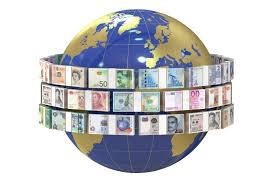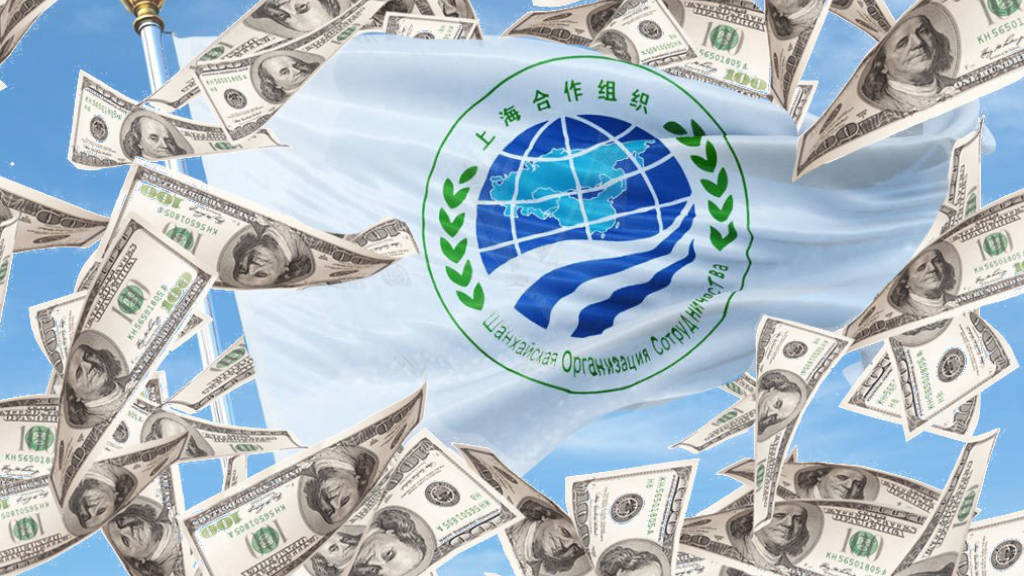Readers will be familiar with discussions amongst the BRICS countries to establish a SWIFT alternative payments and settlements platform, however the concept is now spreading. Russia is calling for the removal of obstacles to the implementation of plans to increase the share of national currencies in mutual settlements between the Shanghai Cooperation Organization (SCO) countries and believes the SCO needs an independent payment and settlement mechanism.
Russian Prime Minister Mikhail Mishustin said at a meeting of the SCO Heads of Government Council that “To strengthen trade and economic cooperation, it is necessary to protect our financial sector from third countries’ influence. To focus on the implementation of the roadmap to increase the share of national currencies in mutual settlements, which our leaders approved two years ago. And to remove the current obstacles. There is a need for an independent SCO payment and settlement mechanism. For example, in the form of electronic platforms, bank institutions, or a system of authorized financial agencies. That way we will create convenient and predictable conditions for business.”
Mishustin also pointed out the need for a transparent financial instrument to support the project activities of the SCO. “One of the options is to establish a special account and use it to support initiatives at the first stages. These will be conducted through a public-private partnership, concession agreements, using funding from the state budget and development institutions, and also other forms of mixed financing” he said.
BRICS compared with SCO

There are however significant differences between the BRICS and the SCO. The BRICS group is a loose multilateral grouping of economies that have significant global and/or regional powers. At present, it includes Brazil, Egypt, Ethiopia, Russia, India, Iran, China, South Africa and the UAE. Another 30 countries, including economies from Latin America, the Middle East, Africa, and across Asia have made applications to join. However, the BRICS is not a trade organisation as such – members are encouraged, rather than legally bound to trade with each other at preferential rates depending upon their physical needs at the time.
The SCO is a multi-faceted, more security-based organisation, although it does include trade within its remit. It is also more Eurasian, rather than a global entity. The SCO full members currently include members Belarus, China, India, Iran, Kazakhstan, Kyrgyzstan, Pakistan, Russia, Tajikistan and Uzbekistan.
Dialogue partners include Afghanistan and Mongolia, while Armenia, Azerbaijan, Bahrain, Cambodia, Egypt, Kuwait, Maldives, Myanmar, Nepal, Qatar, Saudi Arabia, Sri Lanka, Turkiye, and the United Arab Emirates are Observers. Guest attendees include ASEAN, the CIS, Turkmenistan, and the United Nations. Like BRICS though, it is not a trade entity with specific trade regulations amongst its members.
So, what is the point of Mishustin’s calls for a separate SCO financial and settlements platform?
Payment & Settlement Mechanism Options

Here, Mishustin is recognising a fundamental truth – the technology to introduce specific payment and settlement systems without the need to divert funds via SWIFT already exists and is poised to revolutionise global trade mechanisms. While the BRICS has attracted much media attention in its discussions over BRICS pay and mutual settlements, Mishustin has identified a regional – yet simultaneously global desire to move away from US dollar dominance and trade controls, such as sanctions and bans on using specific currencies.
In this, he has recognised a need for other trade blocs to revert to trading in their respective regional currencies rather than the US dollar or other currencies such as the Euro, British Pound, or the CFA (French-African Franc) and the Australian dollar. Given Mishutin’s position, he is naturally proposing this for the Eurasian bloc – being the Shanghai Cooperation Organisation. However, his proposals also have specific implications for other regional blocs, such as the Gulf Cooperation Council, Latin America’s Mercosur, and several African blocs such as COMESA, ECOWAS, and ECCAS – amongst several others.
If correct, and given the technology already exists, such a move places the fiscal responsibility for currency management within these countries and their respective trade blocs back in their own hands and removes them from links to the US dollar and other Western currencies. The reason for this is the breakdown of trust and communications between the use of currencies – especially the US dollar – as a trade weapon, and the loss of sovereign control over currency management this can sometimes interfere with. This is not purely restricted to US government pressures, in the past, wealthy US-based funds have sometimes bet against particular currencies and targeted them to devalue wealth as a means to then purchase national assets at more attractive rates.
What’s Next?

While Mishutin’s comments were aimed at the SCO, the implications are global in nature. What is beginning to occur is a technologically driven movement away from a one-country (US) controlled global payments and settlement system (SWIFT) to a diverse, multiple-structured system of more sovereign-based currency settlement systems. This places the control of sovereign currencies back in the hands of governments (and to some extent the electorate) and moves them away from Western influence.
There are pros and cons with this: and to some extent this is a brave new world and as such regional structures have not been so integral to the diverse nature of global trade as before. The implications for the global role of the US dollar and the continuation of currencies such as the Euro and Pound may start to be called into question, and these will have their own domestic impacts.
There is also the question of how smaller currencies can be supported. That implies some links to natural assets depending upon specific resources. These could be gold, oil, gas, or even assets such as fresh water, other minerals, and even productivity indexes. Here, Russia has a distinct advantage: when evaluating the range of proven and available global mineral and natural resources, Russia consistently appears in the top three in practically all wealth and reserve categories.
Further Reading
Putin Says BRICS Payment System In Progress, Nasdaq Says Would Disrupt US Dollar and Euro

 Русский
Русский













